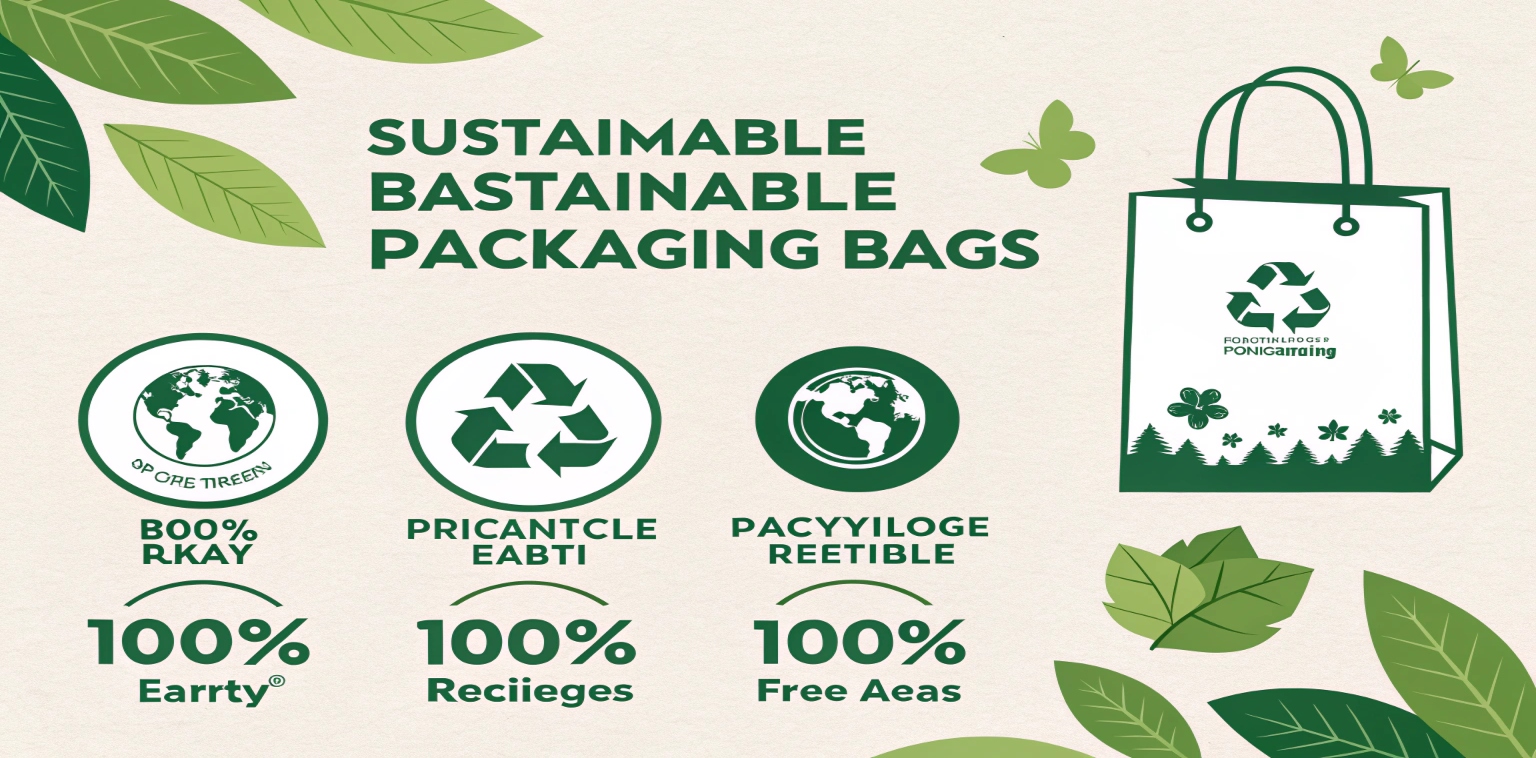Why is Sustainable Packaging No Longer a Niche, But a Necessity for Your Brand?
Featured Snippet: Sustainable packaging minimizes environmental impact through responsible sourcing, design, and end-of-life considerations. Brands are choosing it to meet consumer demand, comply with evolving regulations (like those in the EU and US), enhance brand image, and contribute to a circular economy. Key options include recyclable, recycled-content, and compostable/biodegradable packaging bags.
Hello! I'm Emma Xiao from FDXPACK. As a seasoned editor in the packaging industry for over a decade, I've witnessed a monumental shift towards sustainability. It's a conversation dominating boardrooms, product development, and, most importantly, consumer choices. For businesses in the food, apparel, and e-commerce sectors aiming to thrive in markets like Europe, North America, and Asia, understanding and implementing sustainable packaging is paramount.
At FDXPACK, we are committed to this global effort. Our factory in China, with 16+ years of manufacturing excellence and 4 advanced printing lines, is not only focused on quality and customization but also on pioneering eco-friendly packaging solutions 2. We believe in finding the right balance between environmental responsibility and the practical needs of product protection and branding 2.
Table of Contents
- What Exactly Do We Mean by "Sustainable Packaging"?
- Why Should Your Brand Make the Switch to Sustainable Packaging?
- What Are the Main Types of Sustainable Packaging Bags Available?
- How Do Regulatory Standards for Sustainable Packaging Differ in Key Markets (EU vs. US)?
- Sustainable Packaging in Action: How is it Applied in Fashion & Apparel?
- Sustainable Packaging in Action: What are the Choices for the Food Industry?
- Partner with FDXPACK for Your Sustainable Packaging Journey
1. What Exactly Do We Mean by "Sustainable Packaging"?
Sustainable packaging is designed and produced to minimize its environmental footprint throughout its lifecycle – from raw material extraction to disposal. Key principles often include:
- Reduced Material Usage: Lightweighting and right-sizing.
- Renewable Resources: Using materials that can be naturally replenished.
- Recyclability: Designing packaging that can be easily collected, processed, and remanufactured into new products.
- Use of Recycled Content: Incorporating post-consumer or post-industrial recycled materials.
- Biodegradability/Compostability: Breaking down into natural elements under specific conditions.
- Non-Toxic Materials: Ensuring safety for humans and the environment.
The ultimate goal is to move towards a circular economy where waste is minimized, and resources are kept in use for as long as possible.
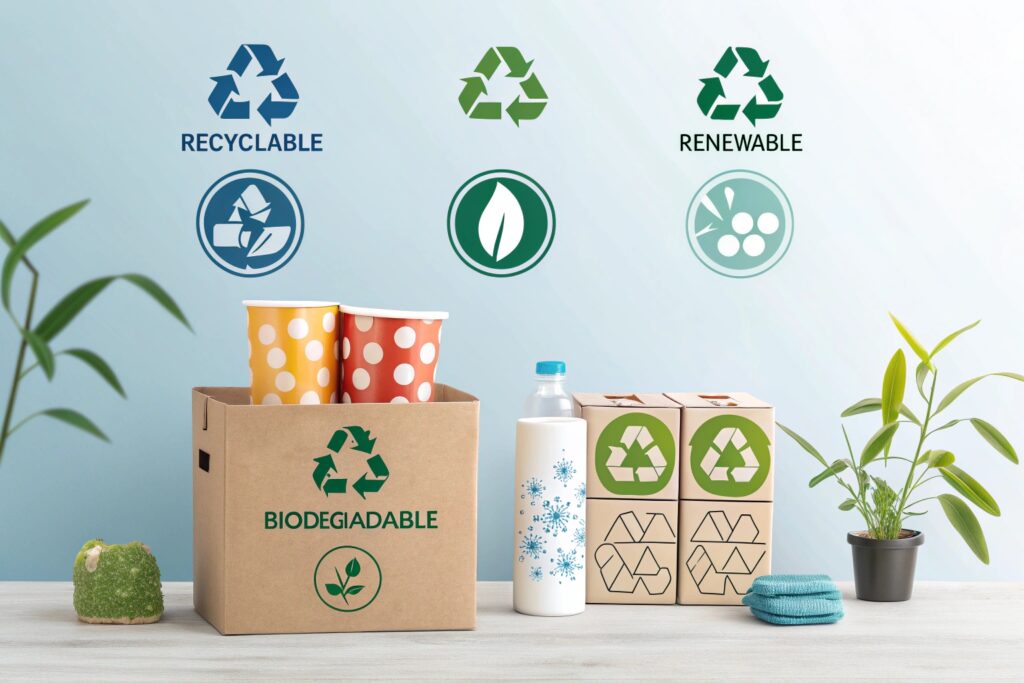
2. Why Should Your Brand Make the Switch to Sustainable Packaging?
The "why" is multi-faceted and compelling:
- Growing Consumer Demand: A significant and increasing number of consumers, especially Millennials and Gen Z, actively seek out and prefer brands that use sustainable packaging. They see it as an extension of a brand's values.
- Evolving Regulations: Governments worldwide are implementing stricter regulations on packaging waste, single-use plastics, and recycled content mandates (more on this in Section 4). Proactive adoption keeps you ahead of compliance.
- Enhanced Brand Image & Reputation: Demonstrating a commitment to sustainability can significantly boost your brand's reputation, build trust, and differentiate you from competitors. It's a powerful marketing tool.
- Corporate Social Responsibility (CSR): It aligns with broader CSR goals and shows your business is a responsible global citizen.
- Potential Cost Savings: While initial investment might be a factor, lightweighting, optimized design, and sometimes even the use of recycled materials can lead to long-term savings in material and shipping costs.
-
Attracting Talent & Investors: Companies with strong sustainability credentials often find it easier to attract and retain talent and are viewed more favorably by investors.
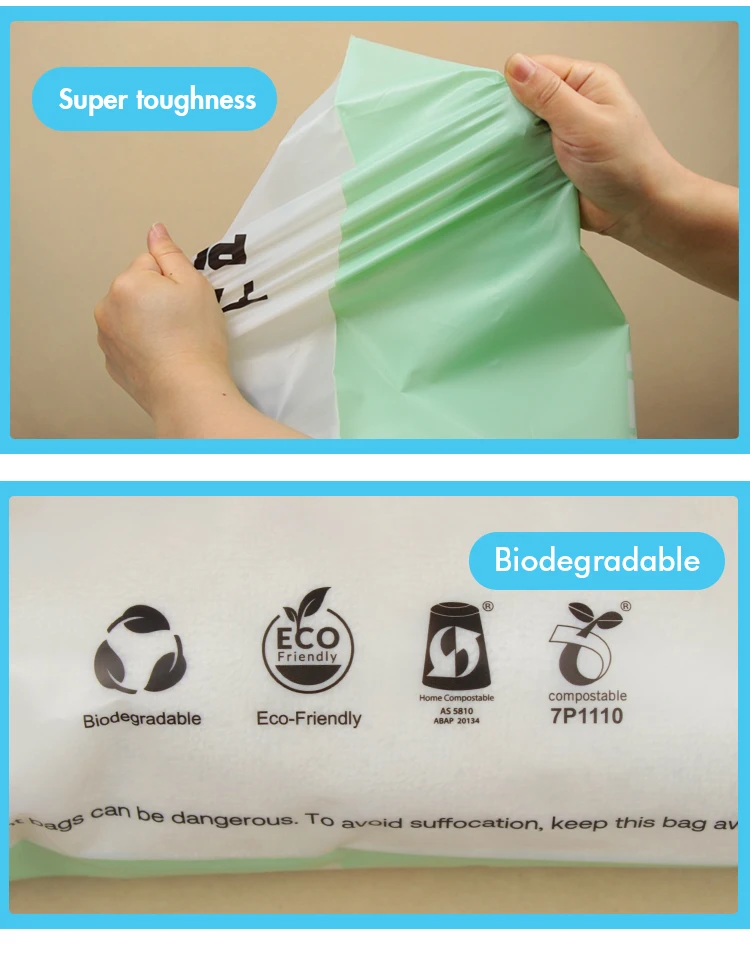 compostable poly bags[/caption]
compostable poly bags[/caption]
3. What Are the Main Types of Sustainable Packaging Bags Available?
At FDXPACK, we offer a range of sustainable solutions tailored to various product needs:
Recyclable Packaging: Closing the Loop?
This is packaging made from materials that can be collected, processed, and reused to make new products.
- Mono-Material Structures: The key to recyclability in flexible packaging is often using a single type of plastic (e.g., all-PE or all-PP pouches). These are easier for recycling facilities to process compared to mixed-material laminates. FDXPACK can produce fully recyclable PE pouches.
- Design for Recycling: This involves considerations like easily removable labels, non-problematic inks, and avoiding materials that contaminate recycling streams.
Recycled-Content Packaging: Giving Materials a Second Life?
This involves incorporating materials that have already been used and processed (Post-Consumer Recycled - PCR, or Post-Industrial Recycled - PIR).
- GRS Certified Materials: FDXPACK holds the Global Recycled Standard (GRS) certification, enabling us to offer packaging with verified recycled content, ensuring traceability and authenticity 2. This is increasingly popular for e-commerce mailers and some non-food contact applications.
Compostable & Biodegradable Packaging: Returning to Nature?
These materials are designed to break down into natural components under specific composting conditions (industrial or home).
- PLA (Polylactic Acid): A bio-plastic derived from renewable resources like corn starch or sugarcane.
- Kraft Paper/PLA Laminates: FDXPACK offers structures like Kraft paper laminated with PLA, which are suitable for certain food items and provide a natural, earthy aesthetic. These can be designed to be 180-day degradable under industrial composting conditions 2.
- Certifications are Key: True compostability is verified by standards like DIN EN 13432 (Europe) and ASTM D6400 (USA), both of which FDXPACK holds product test reports for 2. It's crucial to distinguish these from vaguely termed "biodegradable" plastics that may not break down effectively in natural environments.
External Insight: The Sustainable Packaging Coalition offers valuable resources on defining and advancing sustainable packaging. (Source: Sustainable Packaging Coalition)
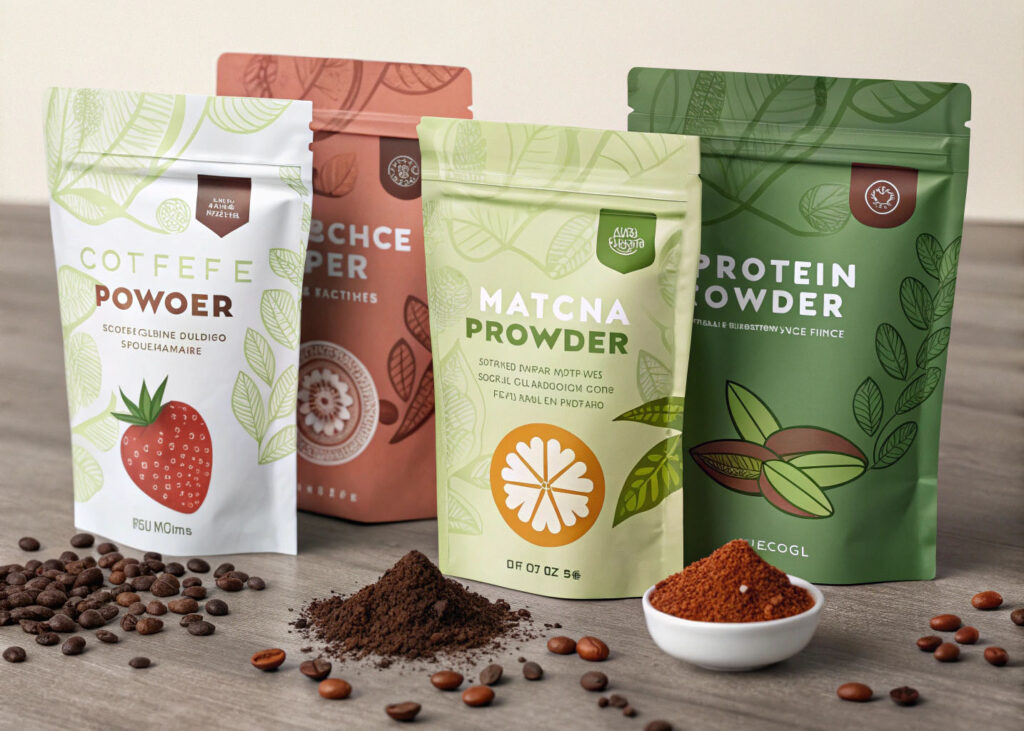
4. How Do Regulatory Standards for Sustainable Packaging Differ in Key Markets (EU vs. US)?
Navigating international regulations is crucial for brands exporting to or operating in these major markets.
| Feature | European Union (EU) | United States (US) |
|---|---|---|
| Key Legislation Focus | Circular Economy Package, Packaging and Packaging Waste Regulation (PPWR - currently under revision), Single-Use Plastics Directive. Ambitious targets for recycling, recycled content, and waste reduction. | Largely state-driven. No single federal law mandating comprehensive sustainable packaging, but growing momentum. FTC Green Guides for marketing claims. |
| Recycling Targets | High, legally binding targets for various packaging materials. Focus on making all packaging reusable or recyclable in an economically viable way by 2030. | Varies by state. Some states (e.g., California, Maine, Oregon, Colorado) have Extended Producer Responsibility (EPR) laws. |
| Recycled Content Mandates | Increasing mandates for recycled content in plastic packaging (e.g., for beverage bottles, with potential expansion to other packaging types under PPWR). | Emerging at the state level (e.g., California, Washington, New Jersey) for certain plastic products. |
| Compostability Standards | EN 13432 is the harmonized European standard for industrially compostable packaging. Claims must be well-substantiated. | ASTM D6400 is the standard specification for labeling plastics designed to be aerobically composted in municipal or industrial facilities. |
| Single-Use Plastics (SUP) | EU SUP Directive bans certain single-use plastic items and mandates reduction/marking for others. | Some states and municipalities have bans or fees on items like plastic bags and foam containers. |
| Labeling & Claims | Strict rules against greenwashing. Claims like "biodegradable" are scrutinized unless tied to specific standards (e.g., EN 13432). | FTC Green Guides provide guidance on environmental marketing claims to prevent deception. Substantiation is key. |
FDXPACK's Commitment: We actively monitor these regulations and ensure our certified sustainable products, like those meeting EN 13432 and ASTM D6400, help our clients meet these market demands 2.
For EU Regulations: European Commission - Sustainable consumption and the circular economy
For US Guidelines: FTC Green Guides
5. Sustainable Packaging in Action: How is it Applied in Fashion & Apparel?
The fashion industry, often scrutinized for its environmental impact, is increasingly adopting sustainable packaging:
- Recycled Poly Mailers: For e-commerce shipments, mailers made with high PCR content (often GRS certified) are becoming standard. FDXPACK can supply these.
- Paper-Based Mailers: Kraft paper mailers, sometimes with protective cushioning, offer a plastic-free alternative.
- Compostable Garment Bags: For protecting individual clothing items, some brands are exploring compostable options, though material performance (like clarity and strength) needs to be carefully matched to the application.
- Reduced Packaging: Eliminating unnecessary inner wraps or tags.
- Reusable Totes/Bags: High-end brands sometimes use branded fabric totes as part of the primary packaging, encouraging reuse.
- Branding with Eco-Messaging: Clearly communicating the sustainable attributes of the packaging on the pack itself.
6. Sustainable Packaging in Action: What are the Choices for the Food Industry?
Food packaging presents unique challenges due to direct food contact, barrier requirements (oxygen, moisture, light), and shelf-life considerations. However, sustainable options are expanding:
- Recyclable Mono-Material Pouches: All-PE (Polyethylene) pouches are suitable for some food products like frozen foods, dry goods, or snacks where high barrier properties are not the absolute priority. FDXPACK produces food-grade packaging compliant with FDA and BRC standards 2.
- Compostable Solutions for Specific Applications:
- Kraft Paper/PLA: Ideal for dry goods like coffee beans, tea, granola, or bakery items where the paper provides some structure and PLA provides a food-safe lining and sealability.
- PLA-lined Paper Cups & Containers: Common for takeaway.
- Challenges: Achieving high-barrier properties (like those provided by PET/AL/PE laminates) with fully recyclable or compostable materials for fresh or oxygen-sensitive foods is an ongoing area of innovation. FDXPACK is actively researching and developing solutions that balance protection with sustainability 2.
-
Clear Labeling: It's crucial to clearly label whether food packaging is recyclable or compostable and provide disposal instructions, as consumer confusion can lead to contamination of recycling streams.
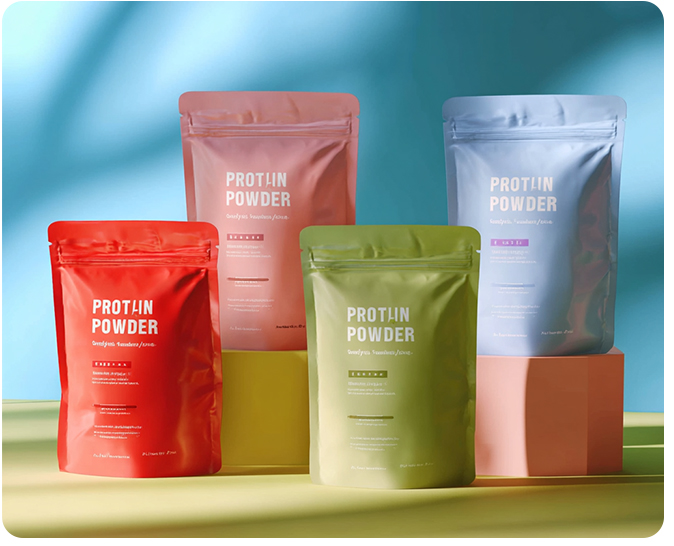
7. Partner with FDXPACK for Your Sustainable Packaging Journey
Choosing the right sustainable packaging can be complex, involving considerations of material science, product requirements, brand aesthetics, and regulatory compliance.
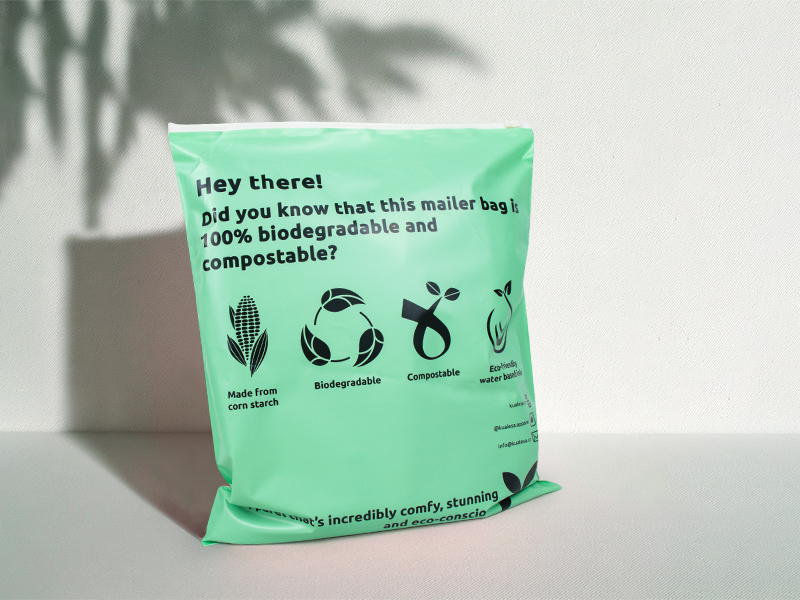
At FDXPACK, we are more than just a manufacturer; we are your partners in sustainability. We offer:
- Expert Consultation: Helping you navigate material choices and design for sustainability.
- Certified Materials: GRS certification for recycled content, and products meeting EN 13432 & ASTM D6400 for compostability 2.
- Quality & Compliance: Adherence to food safety standards like FDA and BRC 2.
- Customization: Tailoring solutions to meet your specific product and brand needs.
We are dedicated to helping brands like yours transition to more sustainable packaging practices effectively and authentically.
Ready to explore sustainable packaging solutions that resonate with your customers and contribute to a healthier planet?
Contact me, Emma Xiao, today!
📧 Email: emma@fdxpack.com
🌐 Website: www.fdxpack.com
Let's make your packaging a statement of your commitment to sustainability.
Keywords:
- Sustainable Packaging Solutions
- Eco-Friendly Packaging Bags
- Recyclable Packaging EU US
- Compostable Packaging FDA BRC
- GRS Certified Packaging
- Sustainable Food Packaging
- Sustainable Fashion Packaging
